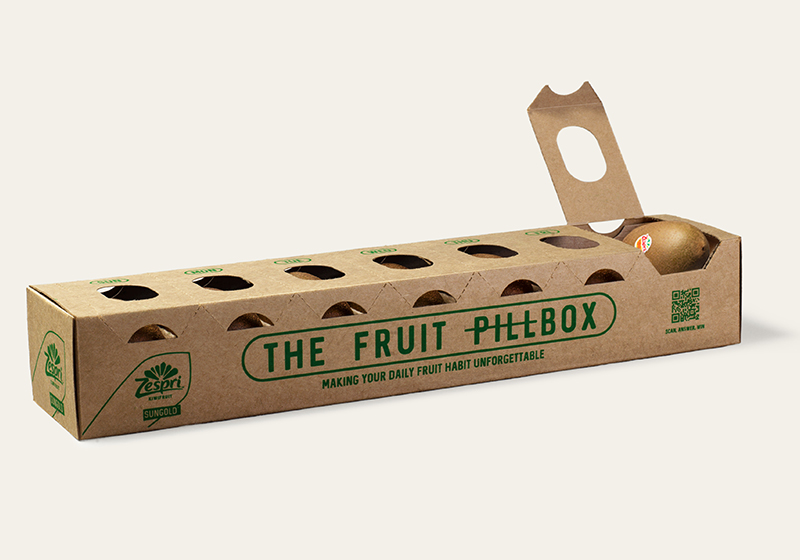Table of Contents
Food waste. It’s a term that, sadly, we hear more than we should these days. It refers to when agricultural and food products are discarded at various stages along the food chain, anywhere from initial production to consumption, despite the fact they are perfectly edible.
The figures are shocking: a fifth of all food is wasted worldwide, the equivalent of one billion meals a day, according to data from the “Food Waste Index Report” from the United Nations Environment Programme (UNEP). The Spanish Agency for Food Safety and Nutrition (AESAN) has also found that the highest rates of food waste comes from fruits, and leafy and root vegetables, which make up 40%.
im-perfect
im-perfect® makes spreads, jams and sauces using local fruits or vegetables which have been discarded from commercial use, either for imperfections, price drops or production surpluses. The company reinvents them and gives them new value through a sustainable model based on the principles of the circular economy. This is how their delicious apple compote and jams – apple and cinnamon, pumpkin and orange, peach, plum, tangerine, lemon etc. – are born. What’s more, the im-perfect® workshop in Barcelona is also a space for social and labour integration for those at risk of social exclusion.



Berries Pride
At a time when many countries around the world are banning the use of plastic, sustainability is also one of the key concerns of the sector. The Netherlands-based company Berries Pride has replaced the plastic trays used for EAT ME – their premium brand of blueberries, raspberries, blackberries and redcurrants – with new packaging consisting of a cardboard tray and a lightweight topseal film so the fruit is visible. By doing so, they have reduced the use of plastic by 94%.



Stemlit Growers
Stemily Growers, a Washington-based tree fruit grower and packer, have designed a new cardboard container for its apples. In this way, they offer consumers a bulk and recyclable option when buying their products through retailers or their own website, as well as spreading information about different apple varieties.
Ametller Origen
A cardboard tray with a handle for easy carrying is also the hallmark of baby avocados sold by Ametller Origen, an agri-food company which is committed to sustainability and local products with stores throughout Catalonia. The packaging resembles an egg carton, with six spaces and panels at each end to hold the avocados in place together with a carrying handle. The advantage of buying small avocados is that you don’t end up leaving half of them in the fridge, thus minimising food waste.

Zespri
A kiwi a day. That’s the goal of one of the world’s largest kiwi fruit suppliers, Zespri, with its new packaging for consumers in Singapore: “The Fruit Pillbox”. Inspired by a pillbox, it features seven compartments – one for each day of the week – each with a Zespri SunGold kiwi inside, and is made from recyclable materials and vegetable-based ink. The initiative comes a response to a survey revealing that more than 50% of Singaporeans do not consume fruit on a daily basis.

Origo
Aside from natural and/or whole fruits, there are other ways of consuming this food group to take advantage of all its beneficial properties. For example, Origo is an initiative dreamt up by a couple in Vancouver who were looking for healthy snacks for their three young children. They opted for freeze-drying, a process that uses very low temperatures – up to -50 degrees Celsius – to extract water from fruits such as strawberries, raspberries, apples, blueberries and bananas, the varieties which Origo offers. The visual identity and packaging were conceived by designer Andrew Zo, famous for the redesign and launch of the world’s fastest HIV test, and the ultra-thing Clifton ring case, which helps to hide the ring before a proposal.



Amäzi
Dehydration is another process that fruit can undergo. It consists of increasing the temperature, either by leaving to dry in the sun, in the air or with an electronic appliance, to reduce the amount of water present in the fruit. This is the process used by Amäzi, which collaborates directly with farmers and small businesses in Uganda to produce its line of flavoured cassava, pineapple and banana snacks, sold in 800 supermarkets across the United States. As for the packaging, they have opted for a fun design that immediately communicates what the product is, then allowing the full story to unfold on the back.
Backbone Branding
The agency Backbone Branding is behind the design of Boon Bariq fruit preserves, part of the Armenian company Ibari Group. The producer had developed a new formula of fruit preservation and had also decided to use more natural ingredients in their recipes with a higher proportion of fruits and berries. To differentiate these products from their competitors, the agency studied numerous ways to illustrate fruits, and came up with the idea of wrapping almost the whole jar in the image of a fruit peel, leaving the background transparent to show the product inside.
Packaging “speaks” to us, and in the case of the fruit sector, it’s clear that there is still much to be said, through ingenious and increasingly sustainable solutions aligned with the fight against food waste.

